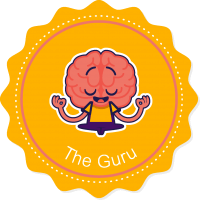Multiple intelligence theory, proposed by psychologist Howard Gardner, suggests that individuals possess different types of intelligence beyond the traditional linguistic and logical-mathematical abilities. According to Gardner, there are eight distinct intelligences that influence how we learn and understand the world around us.
1. **Linguistic Intelligence**: People with linguistic intelligence excel in language-related activities such as reading, writing, and verbal communication. They have a knack for expressing ideas effectively and enjoy working with words.
2. **Logical-Mathematical Intelligence**: This intelligence involves logical reasoning, problem-solving, and mathematical skills. Individuals with this intelligence are adept at analyzing patterns, making connections, and solving complex problems.
3. **Spatial Intelligence**: Spatially intelligent individuals have a strong sense of spatial awareness, visualization, and artistic abilities. They excel in activities such as drawing, designing, and navigating spatial environments.
4. **Musical Intelligence**: People with musical intelligence demonstrate a deep appreciation for music, rhythm, and sound. They have a keen ear for melodies, tones, and musical patterns, and often excel in playing instruments or composing music.
5. **Bodily-Kinesthetic Intelligence**: Bodily-kinesthetic intelligence involves physical coordination, dexterity, and a heightened awareness of body movements. Individuals with this intelligence excel in activities such as sports, dance, and hands-on tasks.
6. **Interpersonal Intelligence**: Interpersonally intelligent individuals have strong social skills, empathy, and the ability to understand and connect with others. They excel in communication, collaboration, and building relationships.
7. **Intrapersonal Intelligence**: This intelligence pertains to self-awareness, introspection, and understanding one’s own emotions, motivations, and goals. Individuals with intrapersonal intelligence have a deep sense of self-awareness and introspective abilities.
8. **Naturalistic Intelligence**: People with naturalistic intelligence have a profound connection with nature, the environment, and living things. They excel in activities such as gardening, animal care, and environmental conservation.
By recognizing and embracing the diversity of multiple intelligences, educators can cater to different learning styles, strengths, and preferences, fostering a more inclusive and effective learning environment for all individuals.



Very informative